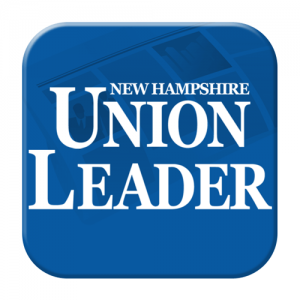
Why is Utah behind the curve on modernizing elections? The rest of the country left the caucus/convention system of nominating candidates decades ago, and moved to a direct partisan primary system.
Today, while Utah Republicans argue about whether they can continue to shut out the majority of registered party voters from selecting their nominee, or whether they must allow candidates to appear on a partisan primary ballot through signatures, people around the country are moving to the next logical step: questioning the very method of nominating candidates for the general election ballot through party primaries.
States such as Washington, California, Nebraska and Louisiana already hold general nonpartisan primaries, and there is a national trans-partisan hunger for change. Other states such as Arizona, Oregon and Florida are getting serious with ballot initiatives to move to a nonpartisan system. The “Open Our Democracy Act,” calling for nonpartisan primaries in U.S. congressional elections, is gaining nationwide citizen support.
Why should this matter to Utah voters? Because most Utah elections aren’t competitive. The Republican Party holds every elected federal and state-wide office, and a supermajority in the state legislature. Unaffiliated voters account for more than 40 percent of registered voters, yet they are barred from meaningful participation in state-funded closed primary elections unless they consent to join a “private” political party. By the time independent voters get to vote in the general election, the decision is usually between a long-shot Democrat and a shoo-in Republican (or vice-versa in Salt Lake City) that they had no say in selecting.
Judge Richard Nuffer was just following precedent in his recent ruling, holding that it’s unconstitutional for Utah to require parties to open their party nominations to non-party members. Count My Vote has responded that they’re perfectly fine with that since the rest of their compromise stays in place. We can tell you that independent voters and other concerned citizens are not fine with a public primary system for exclusive private clubs.
We’re not asking for a challenge to Nuffer’s ruling. We’re asking Utah citizens to join us and call for an end to public elections being controlled by political parties. This is not a left/right issue. People from all political ideologies agree. In Democratic Party v. Jones (a case relied upon by Nuffer in his recent ruling) is the not-widely published statement that parties don’t have a constitutional guarantee to a nomination spot on the general election ballot. If the state designates the winner of a primary election as a party nominee, then it naturally cannot compel the party to open its nomination process to unaffiliated or other non-party voters. The state may, however, use a general, nonpartisan primary in order to determine which candidates appear on the general election ballot.
In a nonpartisan primary, candidates of all party preferences (including no party preference) appear on the same ballot. All voters, regardless of party, receive the same ballot. The highest vote-getters, regardless of party, advance to the general election ballot, making the primary election a true preliminary round of the general election. Parties could still exist, and candidates could still belong to those parties, but party endorsement and advocacy would be done privately, like any other interest group.
Parties would no longer get special state-sponsored privileges that perpetuate their power in a system with straight-ticket voting, redistricting control, check-a-buck funds and more. More candidates who think outside the partisan box would step forward, and general elections would be more competitive. Let’s start a citizen initiative for nonpartisan primaries, and give the people, not the parties, the last laugh.
Tiani X. Coleman is a past chair of the Salt Lake County Republican Party and president of New Hampshire Independent Voters. Randy Miller is president of the Utah League of Independent Voters.






